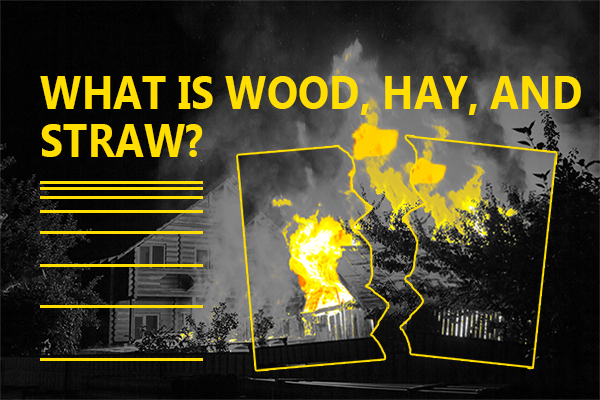by Grant Hawley
First Corinthians 3:8b-15 gives an illustration about the Judgment Seat of Christ. That’s a judgment that is for believers only, and it’s not to determine eternal destiny but reward: “If anyone's work which he has built on it endures, he will receive a reward. If anyone's work is burned, he will suffer loss; but he himself will be saved, yet so as through fire” (1 Cor 3:14-15).
In the illustration, believers are seen as building on the foundation of Christ with various materials. Gold, silver, and precious stones represent the good works, and wood, hay, and straw represent the works that won’t be rewarded. A question I get often is, “what does the wood, hay, and straw refer to in First Corinthians 3?” The most common suggestion people have is that it is works done in the flesh instead of in the spirit. That might mean legalistic works, or just works in which the believer didn’t trust in Christ for His provision in the works. It’s certainly true that works done apart from faith or legalistic works are not pleasing to the Lord. He’s called us to a walk of dependence on Him, not trusting in ourselves.
But that’s not in view in the context of 1 Cor 3:12 and there is something in view in the context that we shouldn’t miss. In fact, I lament that it seems many people who have dedicated their lives to serving Christ have missed it and will find that much of what they are doing won’t survive the fires of judgment. They are saved, but these works won’t be rewarded.
On both sides of the passage, 1 Cor 3:1-8a and 3:16-23, Paul is lamenting the divisive behavior of the Corinthian believers. Let’s take a look at the first passage:
And I, brethren, could not speak to you as to spiritual people but as to carnal, as to babes in Christ. I fed you with milk and not with solid food; for until now you were not able to receive it, and even now you are still not able; for you are still carnal. For where there are envy, strife, and divisions among you, are you not carnal and behaving like mere men? For when one says, "I am of Paul," and another, "I am of Apollos," are you not carnal? Who then is Paul, and who is Apollos, but ministers through whom you believed, as the Lord gave to each one? I planted, Apollos watered, but God gave the increase. So then neither he who plants is anything, nor he who waters, but God who gives the increase. Now he who plants and he who waters are one…
We can see here that the Corinthians’ carnality is seen in their having envy, strife, and divisions among them. By contrast, Paul talks about himself and Apollos both laboring as one in the body (with God giving the increase): “I planted, Apollos watered…he who plants and he who waters are one.”
He goes on to say, “but each one will receive his own reward according to his own labor…” (literal translation) as he launches into his illustration about the Judgment Seat of Christ. On the other side of this illustration, he says, “Do you not know that you are the temple of God and that the Spirit of God dwells in you? If anyone defiles the temple of God, God will destroy him. For the temple of God is holy, which temple you are” (1 Cor 3:16-17). Here, in the Greek, both “defiles” and “destroy” are the same word, and it should be translated “ruins” and “ruin” respectively. We can see here that though there are many Corinthians, they together are one temple (and there’s only one foundation, Christ, vv 9-11). Ruining that temple with division will result in loss, or “ruin” for the one who did so. He follows this by encouraging them instead of causing division by boasting in men, to recognize that all things are already ours in Christ, and that all things are summed up in Christ and that Christ belongs to God. We don’t need to fight for our own kingdom on the edge of God’s building, since we are all one in the One who is the King of the universe.
Context is always key. If we recognize the context of this passage about the judgment seat of Christ, we will avoid a trap into which so many of our brothers tragically fall. Many people think they’re serving the Lord by causing division over minor, or even petty differences. In this age of social media, this kind of thing gets lots of comments saying “BOOM” or “Drop the mic!” and countless likes and shares, but it won’t get a “Well done!” from the Lord. Jesus is looking for people who will labor together, planting, watering, building as one.
Whom are we trying to please, and when do we want our reward, right now on social media, or in Christ’s eternal kingdom?
There is an amazing opportunity to bring God's Word to many people all over the world And to train hundreds or even thousands of indigenous people to do the same. If you'd like to be a part of it, you can learn more and become a parner here.
